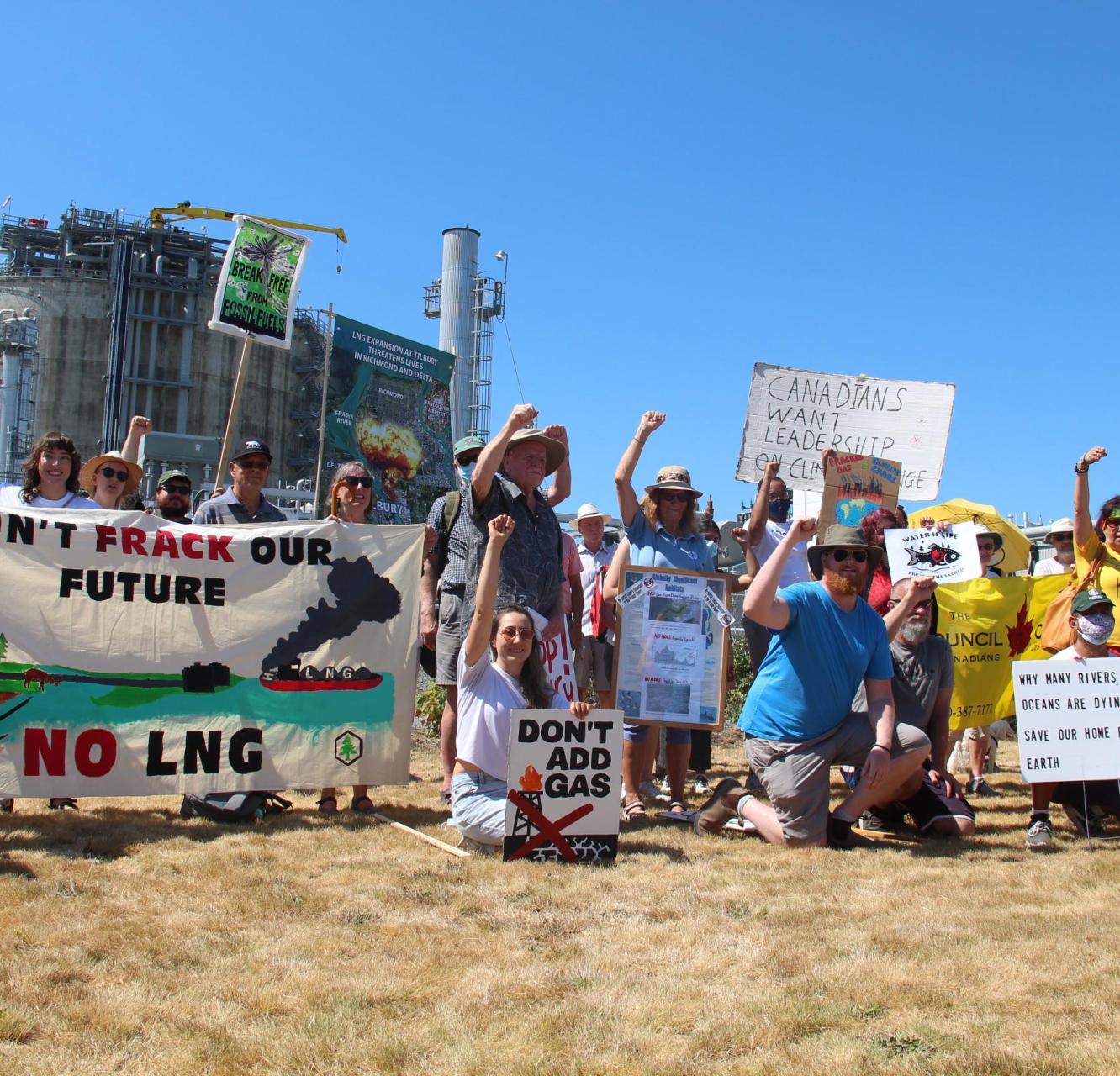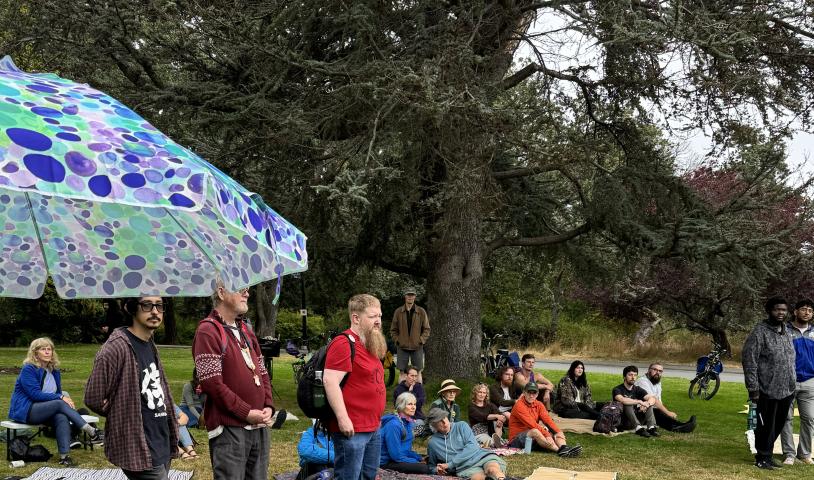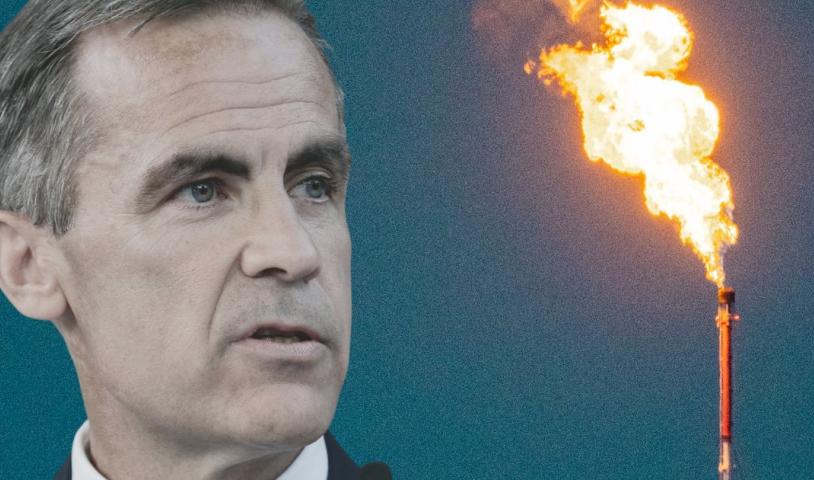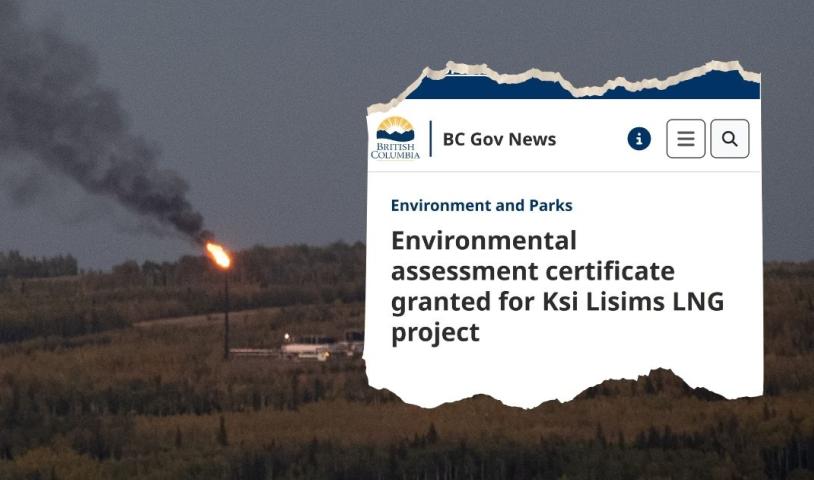Health probe planned for B.C.’s shale gas sector
Tuesday, April 19, 2011
The British Columbia government is drafting plans for a health study into the impacts of the oil and gas industry in the province, amid growing calls for a much broader inquiry.
How the health study would be structured and exactly what it would look at hasn’t been decided yet. Ryan Jabs, a spokesman for the Ministry of Health, said Thursday the government is “working on a plan around the scope and nature of this review.”
The study, however, might fail to satisfy several environmental organizations that have written to the government calling for “a full, public inquiry into the threats posed by an expanding shale gas industry” in the northeast sector of B.C.
Will Koop, co-ordinator of the B.C. Tap Water Alliance, said the province’s plan for a health study “doesn’t go far enough.” He said B.C. should follow Quebec, Nova Scotia and the U.S. Environmental Protection Agency in conducting a sweeping public inquiry concerning both public health and the environment.
“There’s a lot of questions that need to be answered … it should be a comprehensive inquiry,” he said.
Mr. Koop said although the oil and gas industry has been active in B.C. for decades, new technology, in which shale deposits are fractured to release gas by injecting water into the ground, has caused rapid expansion of the industry and unforeseen environmental impacts.
“All this stuff is brand new,” he said of the technique, which is known as fracking. “And the public wasn’t being told what the long-term repercussions were, when the oil and gas leases were let.”
Mr. Koop said in the U.S. many states have begun inquiries because shale gas development has led to the contamination of water wells and aquifers. The contamination of water by fracking in B.C. “is a very high concern,” he said.
The letter – signed by the Sierra Club of B.C., Georgia Strait Alliance, Dogwood Initiative, Council of Canadians, Wilderness Committee and B.C. Tap Water Alliance – calls for “an independent commission to conduct a full public inquiry and hearing process into the environmental and social impacts of shale gas developments.”
David Pryce, vice-president (operations) for the Canadian Association of Petroleum Producers, said the oil and gas industry recognizes a responsibility to respond to public concerns, but he doesn’t think a public inquiry is necessary.
“I think it’s important the public has confidence in what gets done, and how we develop the resource in B.C. So I think there is a need to respond to the questions,” he said. “I don’t believe there is a need for a comprehensive public inquiry. I believe there is a need to get the information in hand and get it out to folks.”
Mr. Pryce said the oil and gas industry has been operating safely in B.C. for more than 40 years, but some way has to be found to assure the public that operations are being effectively managed and regulated.
Jake Jacobs, a spokesman for Energy and Mines Minister Rich Coleman, said the oil and gas industry “is safe and responsible” and operates to the highest standards.
“Our shale gas practices are subject to some of the world’s most stringent environmental standards, with comprehensive regulation by the BC Oil and Gas Commission,” he said in an e-mail. “The BC Oil and Gas Commission closely regulates hydraulic fracturing to protect groundwater. Legislation and regulation guiding the protection of domestic water wells is very specific, including setback distances, well casing and securing requirements.”
Tim Thielmann, a Victoria lawyer representing the Peace Environment and Safety Trustees Society, which earlier this year petitioned the government for an investigation into the health impacts of the oil and gas industry, said he wants the government to clarify what kind of inquiry it is planning.
He said what’s needed is a full-fledged public inquiry, “overseen by the provincial health officer, by a judge, or by somebody that’s clearly independent of the economic or other interests at stake in the oil and gas industry.”




